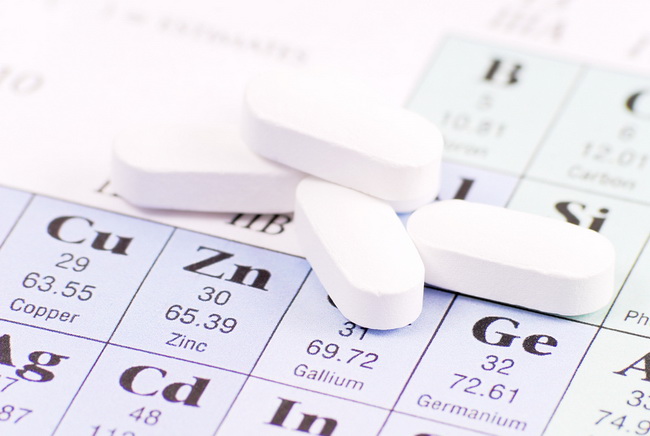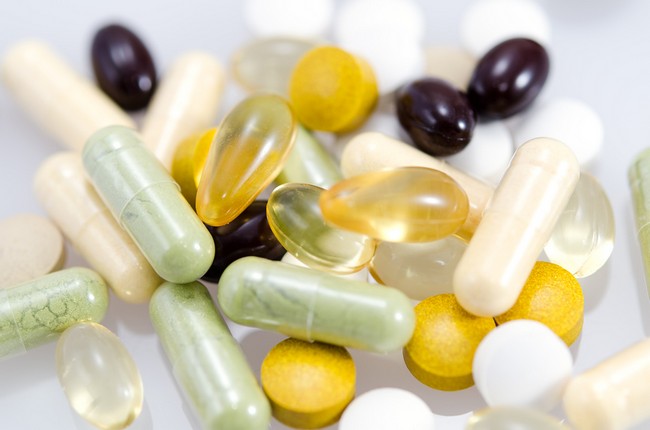- Make It Yourself Lavender Heart-Shaped Bath Bombs!
- 20 Things You Never Knew About “Down There”
- 12 Best Foods For Those Suffering From Arthritis Pain
- 12 Personal Hygiene Mistakes Almost Everyone Makes (Mom Never Told You About #4!)
- 15 Medicinal Plants And Herbs From The Cherokee People
- 12 Mind-Blowing Benefits Of Drinking Coconut Water During Pregnancy
- 12 Outstanding Winter Foods That Won’t Fatten You Up Like A Christmas Turkey
A Lack of This One Mineral Can Cause Male Infertility

Photo credit: bigstock
Men, listen up! If you are suffering from impotence, low sperm count, or infertility, and think you have tried everything, you should pay attention. Your body could be lacking nothing more than a commonly known but little thought about mineral called zinc.
Zinc has many important roles in the body, besides sexual health, including supporting the immune system, skin health, sensory function, enzyme functions and the healing of wounds. Zinc is found in very high concentrations in almost all parts of the body including red and white blood cells, bones, kidneys, retina, pancreas, and the skin. However, semen and the prostate also have high concentrations of zinc, which means that this mineral is vital to male sexual health.
SEE ALSO: Natural Ways to Increase Zinc: 7 Super Foods and Helpful Tips
Males 11 years of age and older should consume a minimum of 15mg per day but 30 to 60mg of zinc will help those with sexual problems.
For the healthy functioning of reproductive organs and the prostate gland, men must have sufficient levels of zinc. This mineral is also an important factor in the healthy functioning of male sex hormones. Zinc is used in every single aspect of the male reproductive system.
A deficiency in zinc can cause seriously poor sexual functioning in men. A few of the symptoms of a zinc deficiency are delayed sexual maturation, testicular atrophy, reduced levels of testosterone, low sperm count, impotence, poor prostate health, as well as infertility. In severe cases, there can even be a complete lack of any sexual function.
Continue to Page 2

Photo credit: bigstock
Research shows that zinc supplements can vastly improve male sexual function and health. In one study that lasted only two months, men with low testosterone levels took 60mg of zinc each day for 45 to 50 days. All had greatly improved sperm counts (from 8 million to 20 million) and increased their levels of testosterone. Of the 22 married men in this study, 9 of their wives conceived during this short research period. Research also shows that taking zinc supplements even helped prevent prostate related health issues such as enlargement of the prostate gland.
While zinc supplements can be perfectly safe at less than 150mg per day, take care that you don’t take too much as these can sometimes lead to other nutritional imbalances in the body. Taking too much zinc can reduce copper levels in the body, which can lead to anemia. Read more about vitamins and minerals.
To be safe, get your zinc naturally from the foods you eat. Try eating more Brazil nuts, pumpkin seeds, sunflower seeds, walnuts, fish, liver, eggs, seafood, hazel nuts, lima beans, pecans and potatoes, all of which are high in zinc. Oysters, especially, are very high in zinc.
If you and your partner are having trouble conceiving, you might also want to take either vitamin C supplements or eat more foods high in this vitamin as it prevents sperm from clumping together. Aim for 2,000 to 6,000mg of vitamin C daily.
Also, if you smoke, quit. Smoking damages sperm quality as well as quantity.
Sources:
Balch, Phyllis A., CNC. Prescription for Nutritional Healing: A Practical A-to-Z Reference to Drug-Free Remedies Using Vitamins, Minerals, Herbs & Food Supplements. 5th ed. New York, NY: Avery, 2010. Print.
Haas, Elson M., MD, and Levin, Buck, PhD, RD. Staying Healthy With Nutrition: The Complete Guide to Diet and Nutritional Medicine. New York, NY: Celestial Arts, 2006. Print.
Murray, Michael T., ND. Encyclopedia of Nutritional Supplements: The Essential Guide for Improving Your Health Naturally. New York, NY: Three Rivers Press, 1996. Print.
































